Student Opportunities
The Environmental systems science program provides students with opportunities for internships, summer jobs and research experiences. In addition to working in our professors' labs, students may find exciting and rewarding research and internship opportunities with the following UC Merced organizations: Sierra Nevada Research Institute, Merced Vernal Pools and Grassland Reserve and Yosemite Leadership Program. Additional opportunities also exist through partnerships with Yosemite and Sequoia/Kings Canyon national parks, the U.S. Forest Service and other agencies.
Research Highlights of Current Students
Daniel Toews

During his studies at UC Merced, Daniel has worked with two ESS professors. Daniel assisted in Professor Jason Sexton's novel exploration of evolutionary adaptations that allow certain monkey flower species to occupy different elevation gradients across the Sierra Nevada mountain range. The research involved hiking and camping in many wilderness areas. Daniel is working with Professor Marilyn Fogel to research teasing apart the effects of nitrogen deposition, extended drought and cattle grazing on vernal pool and grassland ecosystems. Daniel believes involvement with faculty members and their research projects has made his experience at UC Merced invaluable.
Alexander Newman

Alexander has been conducting research with Professor Asmeret Berhe. His project is focused on the impact of land management activities on the ability of the soil system to take up atmospheric carbon dioxide. His experiments will help determine how the concentration of reactive soil minerals, such as iron and aluminum oxides, affects the retention and transport of carbon from soil. In addition, Alex will be working on determining the chemical composition of organic compounds in soil. In Spring 2015, Alex was awarded the Carbon Neutrality Student Internship from the University of California.
Presley Ramirez

Presley is a fellow of the U.S. Department of Agriculture, Undergraduate Training and Mentoring in the Agricultural Sciences Program. As part of his fellowship, he conducted research in 2014 with Professor Teamrat Ghezzehei. The objective of his research was to test a sustainable method of reducing dust emissions from dry soils. His research makes important contributions to the mitigation of dust-borne diseases. Presley attended the 2014 SACNAS National Conference in Los Angeles, where he presented his research results.
Alumni Profiles
Environmental professionals with science backgrounds are increasingly in demand. Aside from local opportunities in the Sierra Nevada and San Joaquin Valley, there is a growing need at the state and national levels to shape informed policies. Having an environmental systems science degree from UC Merced can prepare you to work in efforts to protect endangered species, sustainably manage natural resources and even preventing or adapting to the effects of climate change. These are career areas some of our alumni have already pursued.
Ariel Hikman (2014)

While studying at UC Merced, Ariel also participated in a two-year training for the Yosemite Leadership Program — a collaborative effort between UC Merced and Yosemite National Park. The program aims to address the leadership needs of parks, public lands and the environment. Ariel organized and led an all-female weekend backpacking trip up Chilnualna Falls in Wawona. Ariel now works at the San Francisco SPCA.
Matthew McClintock (2012)

Matthew worked as a research assistant in Professor Asmeret Berhe's soil science lab. Over the course of three years, Matthew helped graduate students and postdoctoral scholars in various research endeavors, such as soil organic carbon, organo-mineral interactionsand biochar. Matthew received his Master of Science degree in soil science from Oregon State University in 2014.
Jesse Anaya (2012)
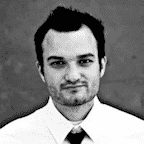
Jesse graduated in 2012 with high honors. During his studies, Jesse was awarded the UCLEADS fellowship to conduct marine microbiology research under the supervision of Professor Wei-Chun Chin. His study revealed adverse effects of nano-particles on the assembly of marine gels. From his studies of marine gels, Jesse was co-lead author of two peer-reviewed research articles published in PLOS ONE. Jesse expanded the policy implications of his research as a course project in ESS 141 (Environmental Science and Policy) and as a PIPA fellow at Princeton University. Jesse now works at the Redwood Community Health Coalition.
Sunny Grunloh (2011)

Sunny conducted two semesters of research in Professor Ghezzehei's lab. She helped Ph.D. student Ammar Albalasmeh set up and conduct experiments. Sunny will graduate with an Master of Science degree in hydrology from the University of Nevada, Reno, in 2015.
Ana Becceril (2011)

Ana took advantage of the multiple opportunities available to ESS students. Off campus, she worked as an engineering technician at the Mariposa County Solid Waste and Recycling division. On campus, Ana worked as an assistant in Professor Lara Kueppers' research lab, focusing on understanding the response of pine trees to climate change. As a field research assistant with the Sierra Nevada Research Institute and the U.S. Forest Service, Ana installed soil resin lysimeters throughout the Sierra National Forest. Ana now works as a research administrator with the UC Merced Sponsored Projects Office.
Ruth Xochihua (2010)

Ruth is one of the original UC Merced pioneer students who started in 2005, when the university first opened. After graduating, she worked abroad in international development and food security. She now works for the National Sanitation Foundation International.
Courses and Learning Environment
The Environmental systems science program offers interdisciplinary and flexible coursework. Core courses provide students with a firm foundation in the fundamentals of chemistry, biology, hydrology, ecology and environmental sciences, while upper-division elective courses allow students the flexibility to pursue a variety of topics related to environmental systems. Our courses emphasize an integrated approach to the discipline, incorporating field studies, laboratory experiments and computations.

Classroom lecture (Professor Frank)

Lab demonstration (Professor Dawson)
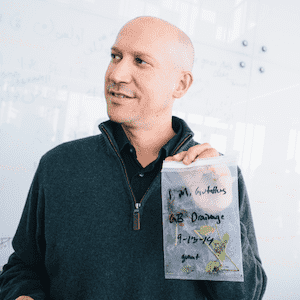
Classroom demonstration (Professor Sexton)
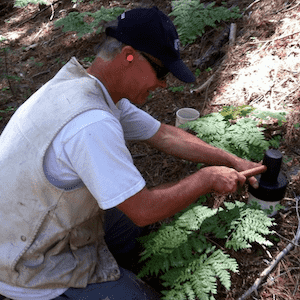
Soil respiration measurement (Professor Hart)
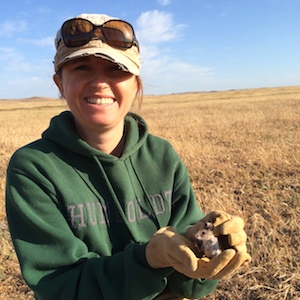
Mammals of the Merced Vernal Pools (Professor Blois)
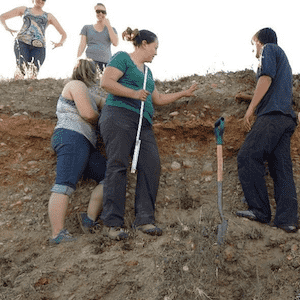
Soil profile description (Professor Berhe)
Environmental Systems Science Program Learning Outcomes
Students in the Environmental Systems Science major will achieve the following:
- Foundational knowledge of physics, chemistry, biology, and mathematics related to environmental systems that supports a working knowledge of basic research methodologies, data analysis, and interpretation for a variety of environment-related data.
- Knowledge of major concepts, theoretical principles, experimental findings, and areas of study related to environmental systems science, and comprehension of the interactions between natural environmental systems and human economic, political, and social systems.
- An ability to employ critical thinking, quantitative and numerical analyses, and hypothesis-driven methods of scientific inquiry in the formulation of research questions, experimental design, application and use of laboratory and field instrumentations, and analysis and interpretation of data related to environmental systems.
- Effective written and oral communication skills, especially the ability to transmit complex technical information.
- An ability to work effectively individually and in teams in classroom, laboratory, and field settings.
* Current information regarding the requirements for the Environmental Systems Science major can be found at the Office of the Registrar Catalog website.
Environmental Systems Science Program Course Requirements
Lower Division Required Courses
General Foundation Courses
- Two semesters of Calculus
- Two semesters of Chemistry
- Two semesters of Physics
- One semester of statistical methods
- One additional Natural Sciences or Engineering course
- *Complete all General Education and School of Natural Sciences Requirements
Freshman Year Survey of ESS Major
- ESS 001: Intro. Earth Systems Science [4] or
- ESS 002: Sustainability Science [4] or
- BIO 001: Contemporary Biology [4]
Sophomore Year Survey of ESS Major
- ESS 010: Earth Resources and Society [4] or
- ESS 020: Fundamentals of Geology [4] or
- ESS 050: Ecosystems of California [4] or
- ESS 065: Natural History of Dinosaurs [4]
Lower Division Electives
- ESS 005: Intro. Biological Earth Systems [4]
- ESS 012: Geology of California [4]
- ESS 025: Introduction to Ecosystem Science [4]
- ESS 034: Introduction to Marine Science[3]
- ESS 040: Air Quality, Resour. & Env. Health [4]
- ESS 047: Astrobiology [4]
- ESS 060: Global Environmental Change [4]
- ESS 09X: Freshman Seminar [1]
- ESS 095: Lower Division Undergrad. Res. [1-5]
- ESS 098: Lower Division Directed Study [1-5]
- ESS 099: Lower Division Individual Study [1-5]
Upper Division Required Courses
- ESS 100: Environmental Chemistry [4]
- ESS 110: Hydrology and Climate [4]
- ESS 120: Introduction to Ecological Environmental Microbiology [4]
- ESS 148: Fundamentals of Ecology [4]
- ESS 170: Fundamentals of Soil Science [3]
- ESS 170L: Fundamentals of Soil Science Lab [1]
Upper Division Elective Courses
Complete at least three of the following ESS electives
- ESS 103: Geochemistry of Earth Systems [3 units]
- ESS 105: Biogeochemistry [4 units]
- ESS 112: Subsurface Hydrology [4 units]
- ESS 124: Terrestrial Ecosystem Ecology [3 units]
- ESS 125: Microbial Ecology [4 units]
- ESS 129: Paleoecology [3 units]
- ESS 130: Plant Biology [4 units]
- ESS 131: Atmospheric Chemistry and Physics [4 units]
- ESS 132: Applied Climatology [3 units]
- ESS 133; Flora of California [5 units]
- ESS 134: Air Pollution and Resources [3 units]
- ESS 141: Environmental Science and Policy [ 4 units]
- ESS 149: Conservation Biology [4 units]
- ESS 174: Stable Isotope Ecology [4 units]
Additional Requirements
Complete one economics course
- ECON 100: Economics of the Environment and Public Policy [4 units] or
- ECON 120: Intermediate Microeconomic Theory [4 units] or
- ENGR 155: Engineering Economic Analysis [3 units]
Complete two upper division courses in Natural Sciences, Engineering, Geography (GEOG) or Management (MGMT). [6-8 units]. Suggested courses include
- BIO 140: Genetics [4 units]
- BIO 141: Evolution [4 units]
- ENGR 180: Spatial Analysis and Modeling [4 units]
- ENVE 114: Mountain Hydrology of the Western United States [3 units]
- ENVE 118: Global Change [4 units]
- ENVE 140: Water Resources Planning and Management [3 units]
- ENVE 152: Remote Sensing of the Environment [4 units]
Complete one research or service-learning course
- ESS 095: Lower Division Undergraduate Research [1-5 units] or
- ESS 195: Upper Division Undergraduate Research [1-5 units] or
- ENGR 097: Engineering Service Learning [1-2 units] or
- ENGR 197: Engineering Service Learning [1-2 units]
Explore UC Merced & ESS
Many of our courses take advantage of protected land adjacent to the UC Merced campus — Merced Vernal Pools and Grasslands Reserve. Check out this video of some our students learning about ecosystems:
Contact Information
Jennifer Souza
Advisor
Office Hours
Sora Kim
ESS Program Chair
Associate Professor
email: ess.chair@ucmerced.edu



